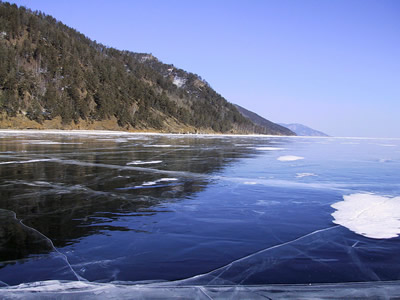This photo shows winter ice on Lake Baikal. In the future there may not be as much ice on this lake during the winter because of global warming.
Click on image for full size
Courtesy of Lyubov Izmest'eva
Global Warming Affects World's Largest Freshwater Lake
News story originally written on April 30, 2008
For the past 60 years, scientists have been collecting and analyzing water samples from Lake Baikal. They have discovered that temperature of this lake is rising, which means that this part of the world is experiencing global warming.
The lake, named Lake Baikal , is the world's deepest and oldest lake. It contains 20 percent of the world's freshwater, so it is large enough to hold all the water in the United States' Great Lakes.
Stephanie Hampton, one of the scientists working on this study, said, "Warming of this isolated but enormous lake is a clear signal that climate change has affected even the most remote corners of our planet."
The data from the lake shows that the surface waters have warmed significantly and that the food web in this lake has had long-term changes. Scientists used to think that Lake Baikal would be the least likely to experience climate change because it has so much water in it.
You might also be interested in:
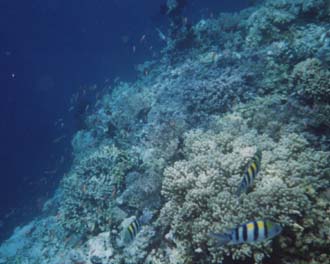
Have you ever taken your temperature to see if you are getting sick? Scientists have been taking the Earth's temperature and have found that it is getting warmer. During the past 100 years, the Earth's
...more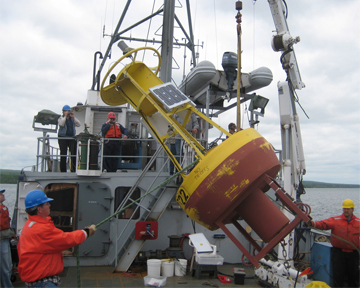
The Earth's climate is warming. That means the air is warming, the oceans are warming, and the land is warming. Did you know that lakes around the world are warming too? Scientists study lakes using satellite
...more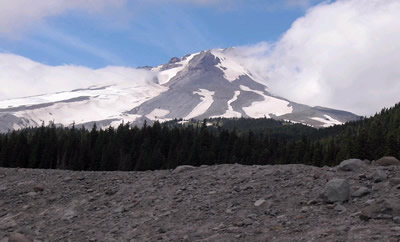
Scientists have learned that Mount Hood, Oregon's tallest mountain, has erupted in the past due to the mixing of two different types of magma. Adam Kent, a geologist at Oregon State University, says this
...more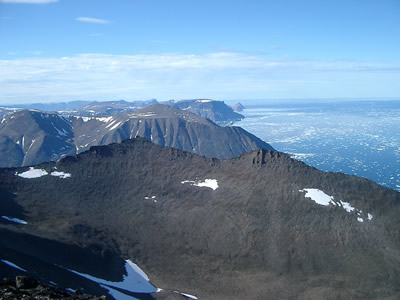
The Earth's mantle is a rocky, solid shell that is between the Earth's crust and the outer core. The mantle is made up of many different reservoirs that have different chemical compositions. Scientists
...more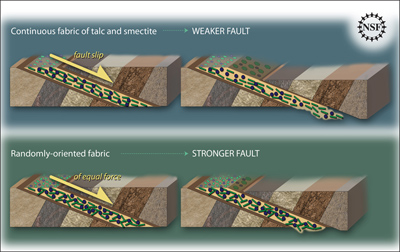
Some faults look strong and like they wouldn’t cause an earthquake. But it turns out that they can slip and slide like weak faults causing earthquakes. Scientists have been looking at one of these faults
...more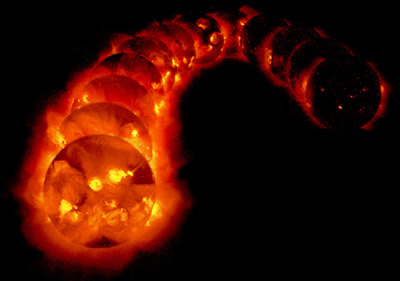
The sun goes through cycles that last approximately 11 years. These solar cycle include phases with more magnetic activity, sunspots, and solar flares. They also include phases with less activity. The
...more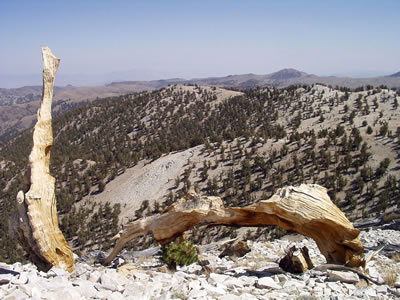
Studying tree rings doesn't only tell us the age of that tree. Tree rings also show what climate was like while the tree was alive. This means that tree rings can tell us about climates of the past. Two
...more


